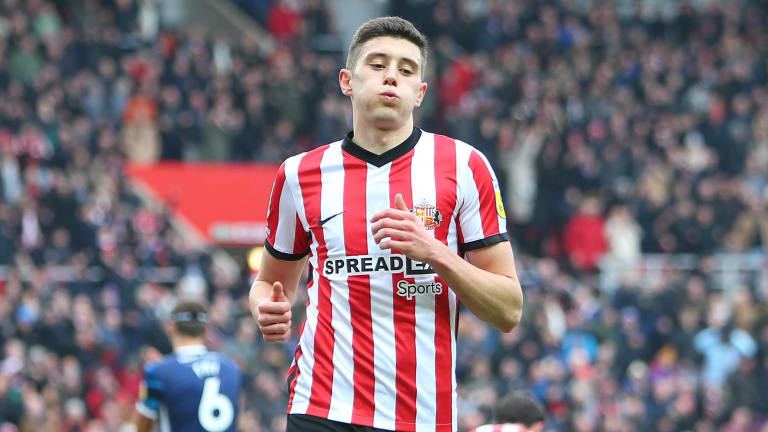
Sunderland, strikers, and the agony of 'if'

‘If’ is a dangerous word in football. It has driven many a football club, manager, and fanbase mad, and it will do so again. Hopefully, Sunderland won’t be one.
It’s a word that has started to creep into the discussion an awful lot after Sunderland picked up just one point from their last three games.
From the fanbase, it’s of course understandable. The decisions that have left Sunderland with one centre forward – and even he is more of a number ten and one who has barely played any football in his career so far – have been rightly scrutinised and left many frustrated.
Even Tony Mowbray has found himself struggling with that frustration now, and he has resorted to ‘if’ as well now.
"If we had had Viktor Gyokores in our team, we would have won comfortably today, I think,” Mowbray said after the defeat to Coventry.
“Put Ross Stewart in today, and I think we would have won the football match.”
He is right, of course. Take a player of Stewart’s quality out of any team in the Championship and they would be worse. When that team is a newly-promoted one after four years in League One, it’s tough to find the budget for strength in depth too.
That doesn’t make it any less frustrating, though. Sunderland did score against Coventry in the end, but it was following a Danny Batth flick-on – it was with a physical focal point to play off of. That small yet very important point should not be overlooked.
It wasn’t the only ‘if’ the plagued Sunderland at Coventry by any means. If Batth’s early header had dropped in rather than bouncing back off the bar, things could have been very different. If the referee had given one of any one of three Coventry offences – one foul and two handballs – in the build-up to the opening goal… well, who knows?
And does it actually matter? Sunderland can’t legislate against those kinds of things. If there is one thing we have learned in the Championship, it is that the referees are just as inexcusably bad as they were in League One. You take them as they come.
Sunderland could have protected themselves from the striker problem, though, so it’s no surprise that is the ‘if’ that is proving to most difficult to swallow for supporters.
After all, Sunderland did not create the problem of Ross Stewart getting injured, but they created the problem of Stewart getting injured leaving them with no available centre-forwards.
Still, it is what it is, right? There were reasons why Sunderland didn’t sign more strikers. The owners and recruitment team are prioritising culture and development above all else – short-term frustration and a slow slide from play-off contention to mid-table also-rans are seen as a small prices to pay for long-term prosperity.
We don’t have to agree with those reasoning and that rationale. Many present the argument that one short-term striker signing, even to use as just an emergency option to try and chase games, could have seen Sunderland enjoy the best of both worlds. However, agree or disagree, the conviction shown by the club in their long-term planning has to be acknowledged and respected, even if a little begrudgingly.
Of course, they also have to deliver on the long-term prosperity part...
In the meantime, there is no doubt that ‘if’ will continue to dominate the rest of the season for Sunderland. The club can have no complaints about that. It is a consequence of the decisions they have made.
The decision has merit. The fact that no club who has won back-to-back promotions to the Premier League has survived a single season there is a spectre that looms large. Sunderland’s best chance is a sustainable Premier League future is a slow but solid build from the foundations up. There is no denying that.
However, the only possible way to justify the January decisions made to sacrifice the short term, is to deliver in the long-term. They know it, we know it – and they know we know it.
Read more Sunderland news
- Ten players you probably forgot played for Sunderland in League One
- Former Sunderland defender earns fresh start at Wycombe Wanderers
- Charlie Methven Charlton takeover off with former Sunderland owner blasted over his conduct
- Tony Mowbray: 'I don’t want to keep repeating this but the Sunderland fans are amazing'
- FEATURE: 15 random former Sunderland players you probably didn't know still work in football
- Former fan favourite back at Sunderland to help develop new hero
- Best Sunderland defensive partnerships: How do Dan Ballard and Danny Batth compare?
